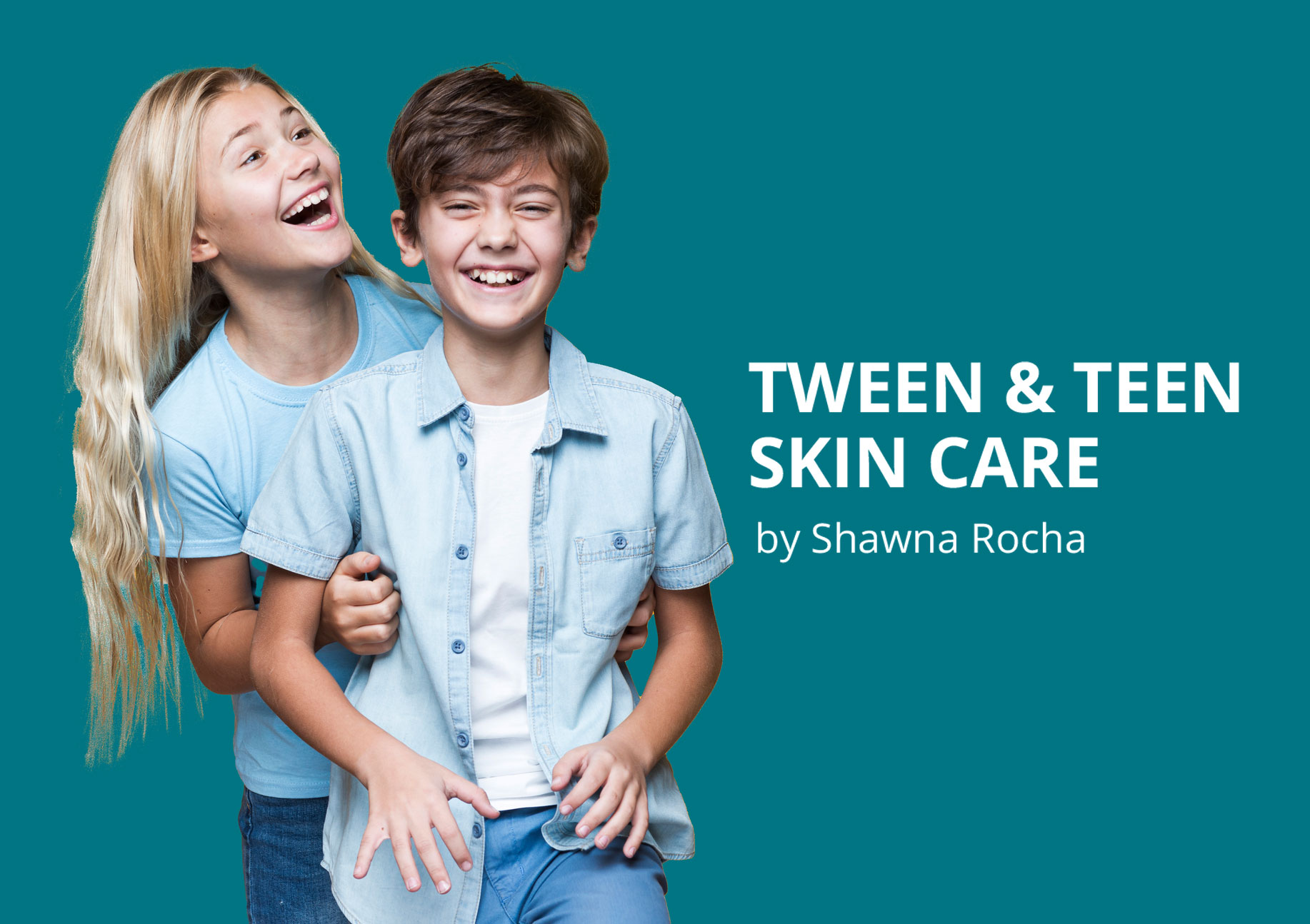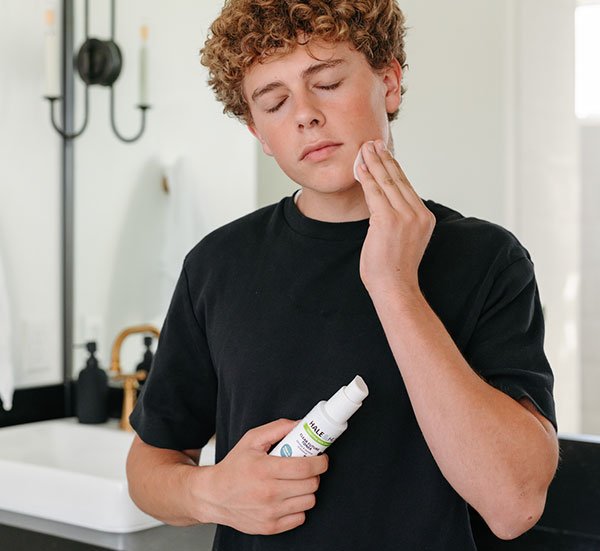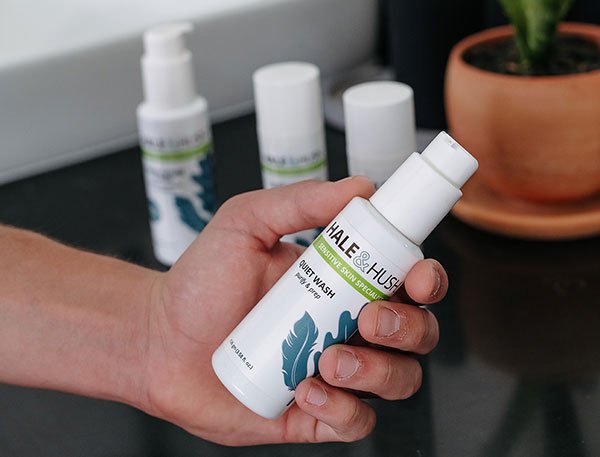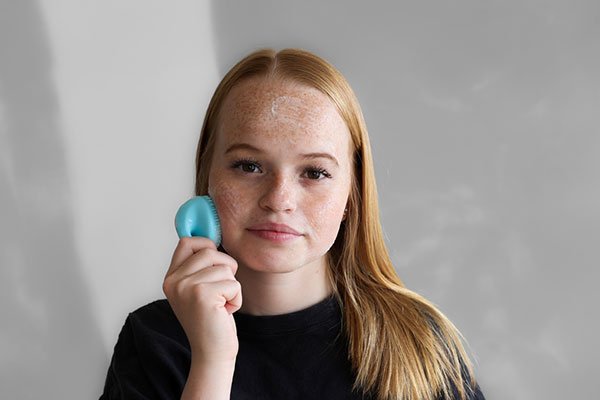
MARCH MONTHLY BLOG
By Shawna Rocha
Skincare is not just for adults. Taking care of the skin as a teenager can help maintain a healthy and radiant complexion for years to come. Teens who learn to care for their skin are more likely to continue these habits as adults. By establishing proper skincare habits at an early age can also prevent premature aging and avoid more serious skin problems down the line. A well-maintained skincare regimen helps prevent breakouts and keeps the skin clear. Regular cleansing and proper hydration are essential. Clear and healthy skin contributes to a positive self-image. When teens feel good about their skin, it positively impacts their overall confidence.
WHEN TO START?
The younger the better to create good habits. As soon as they want to clean their face is a great time to begin. Gentle cleansing sets a routine. As soon as they play sports or participate in outdoor activities. From an early age, educating kids on personal hygiene helps them be confident and feel good about themselves. Once true teenage chaos kicks in, things can get a little more complicated. Teen skin needs focus on simplicity and self-acceptance while offering products teens will want to use.

KEEP IT SIMPLE.
The first step of any good skincare regime is understanding the skin and what it needs. Beyond treating any pressing issues, a solid teen skin-care routine should “keep it simple” and focus on supporting the skin barrier function and protecting the skin from environmental damage such as UV exposure and pollution. For tweens, a three-step routine is the best route. And it sets a good routine for later down the road when they will need more products in their routine. Tweens and teens basically need just three essentials: cleanser twice a day, moisturizer, and sunscreen. All products recommended and adjusted to their skin type and potential issues are the best choices.
GENTLE YET EFFECTIVE.
Harsh ingredients are not necessary when introducing skincare to tweens and teens. When this younger age group introduces too much, too soon, it can disrupt the natural cycle and can lead to irritations, redness, inflammation, and burns on the skin or cause cell turnover to occur too quickly. They are learning how to keep the skin clean, hydrated and protected. Other products and ingredients can be added later when the skin becomes oily, dry or break outs begin to occur. Then is the time to add different products with more active ingredients that target those skin issues. Always start slow then add other products specifically formulated for teen skin issues as they get older.

CONSISTENCY IS KEY.
Tweens and teens need to learn how to be consistent with their skincare and set good routines for life. The consistency of washing, hydrating, and protecting the skin is a lesson to ensure good skin care for positive long-term effects. A consistent skin routine leads to healthy habits, increased self-esteem and also contributes to positive long-term skin health as they age.
EDUCATION IS NECESSARY.
Education about the skin, how it functions, and what it needs is of the upmost importance when dealing with tweens and teens. It is important for them to understand how diet, hormones and the environment all have effects on the skin. Taking tweens and teens to see a licensed esthetician early is important to learn about skin health, conditions, and skin types.
Today’s teens face an overwhelming amount of advice and product choices; plenty of it from unqualified sources on platforms such as TikTok and entirely unsuited to hormonally challenged and sensitive adolescent skin. Tik Tok is not the expert on skincare. Trends and fads can destroy the barrier, damage the skin, and create negative skin reactions. It is imperative for teens to have that reassurance that a product is appropriate for their skin. As the hormones flare and skin conditions worsen, then it is time to visit a dermatologist.

INTRODUCING HEALTHY EATING HABITS IS CRUCIAL.
It is never too early to introduce good eating habits to teens. Simple education on healthy eating and what foods can trigger negative skin reactions can make all the difference in skin health. The skin can reflect a lack of adequate nutrition. To perform its essential functions, the skin and nails depend on nutrients from the foods eaten, including vitamins A, B, C, D, and E, protein, and essential fatty acids.
When these nutrients are lacking, the skin loses its ability to protect the body causing certain diseases and disorders to develop. Some general signs include redness, pain, swelling, rashes, and delayed wound healing or improper scar formation. Eating foods that are rich in vitamins, taking vitamin supplements, or using products high in these ingredients on the skin can help treat these problems. Staying hydrated is also important for healthy skin. Teaching tweens and teens these simple factors of how food affects skin health will benefit them long into their lives.
Building a skin-care routine for teens and tweens can seem complicated. Puberty is often the first-time kids are dealing with acne, blackheads, dry patches, and the general roller coaster of hormonal changes. That can stir up anxiety around self-esteem and the feeling that the body they have known is suddenly out of their control. But it is best not to overthink or go overboard with skin care for teens and tweens. Remember to start soon, begin slowly, be consistent, find the education needed, and reach out to an esthetician to help navigate the process for a successful teenage skin adventure.
Sensitive skin care redefined by industry experts who have made it their #1 goal to supply the market with the highest quality sensitive skin care products.